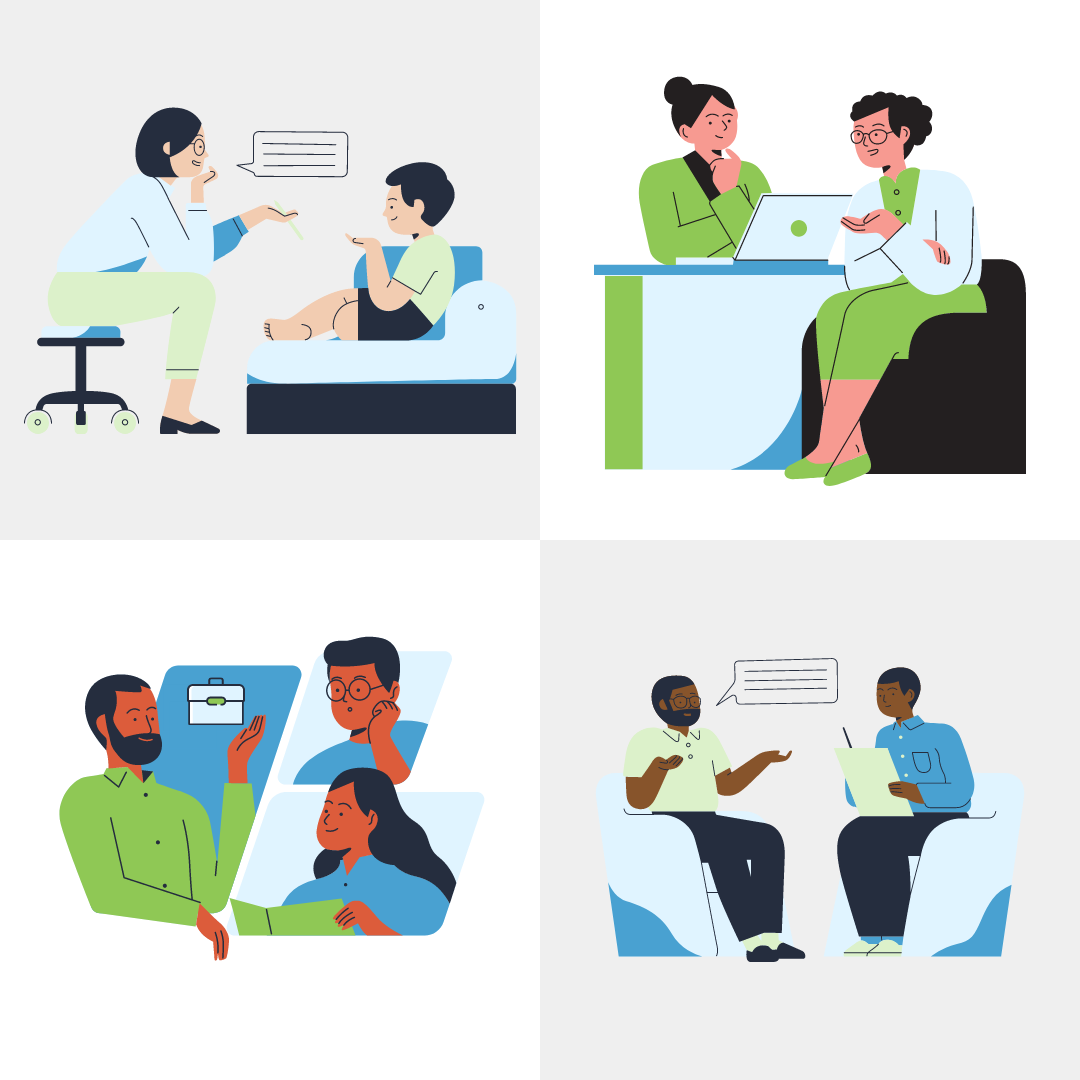2 CE Credit Hour Training on Cross-Jurisdictional Teletherapy and Licensure Compacts
(Preorder On-Demand Self-Study)
Navigating Legal-Ethical Cross-Jurisdictional Teletherapy Practice in 2025: A Guide for Mental Health Professionals
presented by Eric Ström, JD, PhD, LMHC and Liath Dalton
2 legal ethical CE credit hours
The rise of teletherapy has permanently altered the landscape of mental health service delivery. As technology continues to evolve, teletherapy remains a preferred mode of care for many clients and clinicians. The ability to practice across jurisdictions, however, introduces a complex legal and ethical landscape for behavioral health professionals.
As therapists and clients connect across state and national lines, the question of jurisdictional authority, licensure requirements, and legal risks becomes critical. Fortunately, pathways for legal cross-jurisdictional practice are expanding, particularly with the implementation of licensure compacts and temporary practice permissions.
Preorder the On Demand Self Study
This 2-hour law & ethics seminar presents an updated review of how to legally and ethically navigate cross-jurisdictional teletherapy practice in 2025. The course will explore:
- The latest licensure compacts, including new states joining PSYPACT; the status of the Counseling Compact, and the Social Work Licensure Compact.
- Recent legal developments and court rulings affecting telehealth.
- State-specific rules and evolving standards for temporary practice provisions.
- Risk management strategies for cross-border teletherapy.
- Custodian of record obligations for multi-state licensure.

Key Questions Addressed
- Which states or nations allow me to work with clients within their borders?
- Will my own state allow me to work outside its borders?
- Can I travel out-of-state and still work with my home-state clients?
- How do I find out if a state allows practice from out-of-state?
- Can I provide coaching instead of counseling/psychotherapy in states where I don’t have permission to practice under my license?
- How do PSYPACT, the Counseling Compact, and the Social Work Licensure Compact affect my ability to reach clients across borders?
- What risks do I need to manage when working across states?
- What are my obligations regarding a custodian of record when licensed/authorized to practice in multiple states?
- What are the considerations and risks when working with minors across state lines?
- How does insurance reimbursement/coverage work when providing cross-jurisdictional teletherapy?
- How does Medicare cover mental/behavioral telehealth, and cross-jurisdictional telehealth?
Feedback from the live event:
“The training today answered many questions I have encountered regarding current clients and how to ethically and legally manage them. Thank you so much for the legal information as well as the implications of having various other factors to contend with. The various discrepancies among different states can be kind of confusing and present some pits. Thank you for the excellent information.”
“The presentation was excellent and super informative. This is a topic I have been wondering about and have had trouble getting clear answers on. So, I am grateful for the clarifications made in the presentation and the many resources that were provided.”
“Thanks so much for this webinar!!! Please let Eric and Liath know they are very much appreciated.”
“Very helpful, thank you! Really appreciate the tools and documents, as well.”
Who is this course for?
This updated introductory-level course for counselors, clinical social workers, marriage and family therapists, and clinical and counseling psychologists will discuss the vicissitudes and rapidly shifting landscape of cross-jurisdictional practice in the post-COVID “age of teletherapy.”
Hybrid Practices
 Teletherapy Only Practices
Teletherapy Only Practices

I’ve been watching several of your CE programs and, while I’ve always been impressed with your services, I just have to say, your programs are excellently done with production and content and simultaneously warm and accessible. I really appreciate what you do!
Legal Perspective
Identify the evolving legal standards regarding cross-jurisdictional telehealth.
Strategies for Care
Describe why cross-border practice might be illegal and identify two key legal risks of unpermitted practice.
Risk Evaluation
Construct effective strategies to support client continuity of care across state lines.

Clinical Risks
Evaluate the clinical risks and benefits of providing telehealth services across jurisdictions

Licensure Compacts
Describe different schemes of cross-jurisdictional practice permission and how they impact the learner’s ability to work with clients who are present in foreign states.
Course Details
2 CE Credit Hour. Self Study
Title: Navigating Legal-Ethical Cross-Jurisdictional Teletherapy Practice in 2025: A Guide for Mental Health Professionals
Authors/Presenters: Eric Ström, JD, PhD, LMHC; Liath Dalton
CE Length: 2 CE credit hours, legal-ethical
Legal-Ethical CE Hours: 2 legal-ethical CE hour
Educational Objectives:
By the end of this course, participants will be able to:
-
- Identify the evolving legal standards regarding cross-jurisdictional telehealth.
- Describe why cross-border practice might be illegal and identify two key legal risks of unpermitted practice.
- Construct effective strategies to support client continuity of care across state lines.
- Evaluate the clinical risks and benefits of providing telehealth services across jurisdictions.
- Describe different schemes of cross-jurisdictional practice permission and how they impact the learner’s ability to work with clients who are present in foreign states.
Syllabus
- The Role of Licensing Boards & Jurisdictional Practice
- Why licensing boards exist
- The authority of out-of-state boards
- When foreign licensing boards impact practice
- Legal & Ethical Risks in Cross-Border Practice
- Practicing in a state where you’re not licensed
- Coaching vs. counseling distinctions
- Case law updates on teletherapy
- Three Types of Cross-Jurisdictional Practice
- Client is in a foreign jurisdiction
- Therapist is in a foreign jurisdiction
- Both client and therapist are in separate foreign jurisdictions
- Current and Future Efforts to Reduce Interstate Practice Barriers
- PSYPACT
- The Counseling Compact
- The Social Work Licensure Compact
- Working with Clients in Foreign Nations
- The difference between practice being permitted and practice not being forbidden
- Finding potential information sources in nations where government websites are not written in English, or where information about practice licensure/registration is not findable
- What about clients on US military bases?
- Getting Answers on Cross-Jurisdictional Rules
- Understanding temporary practice allowances
- Getting answers about practice in foreign jurisdictions
- The info items a therapist needs to know about practice in a foreign jurisdiction to determine if it is legal to work from there or with clients there
- A process for getting these answers from US states
- Documenting due diligence and permission to practice
- Coaching vs. Psychotherapy Across Jurisdictions
- Defining the legal and ethical boundaries
- Identifying risks of misrepresentation
- How different states interpret coaching exemptions
- Working with Minors Across State Lines
- Parental consent & confidentiality complexities
- Differences in state laws regarding minor consent
- Managing risk when working with minors remotely
- Special considerations for mandated reporting
- Insurance & Reimbursement in Cross-Jurisdictional Teletherapy
- Understanding private insurance coverage limitations
- Medicaid and Medicare considerations
- Current & Future Trends in Teletherapy Practice
- Expansion of licensure compacts
- Legislative updates impacting telehealth
- Predicting the future of interstate teletherapy
Meet Our Presenters
Presented by
Eric Strom JD PhD LMHC

Eric Ström JD PhD LMHC, is an attorney and Licensed Mental Health Counselor in Seattle, Washington. As an attorney, Eric provides legal counsel, consultation, and guidance to mental health professionals. Eric’s counseling practice is focused on providing counseling services to combat veterans as well as providing supervision and consultation to other clinicians. Eric currently serves on the American Mental Health Counselors Association Ethics Committee, and is the ethics advisor for the Washington Mental Health Counselors Association. Eric has taught a range of courses in counseling and professional ethics at a variety of graduate and undergraduate programs.
Eric earned a PhD in Counselor Education and Supervision at Oregon State University, a Master of Arts Degree in Counseling Psychology from the Northwest School of Professional Psychology at Argosy University Seattle, graduated cum laude from Wayne State University School of Law in Detroit Michigan, attended the Hague Academy of International Law in the Hague Netherlands, and received a Bachelor of Arts degree in Linguistics from the University of Michigan.

Liath Dalton is PCT’s director and a co-owner. Liath is especially passionate about helping therapists be resourced and supported in navigating the security compliance process and identifying the solutions and processes that meet the particular needs of their practices. Liath’s consultation area of expertise is focused on selecting the right combination of services and tech that not only meet the legal-ethical needs of mental health practices, but also the functionality, efficiency, and cost-effectiveness needs as well.
Resources & Citations
Accuracy, Utility, and Risks Statement:
This program discusses strategies for complying with HIPAA, state rules, and professional ethics codes. It may not include all applicable state laws. Misapplication of these materials could result in legal or ethical violations.
Conflicts of Interest: None noted
Commercial Support: None.
Preorder the On Demand Self Study
